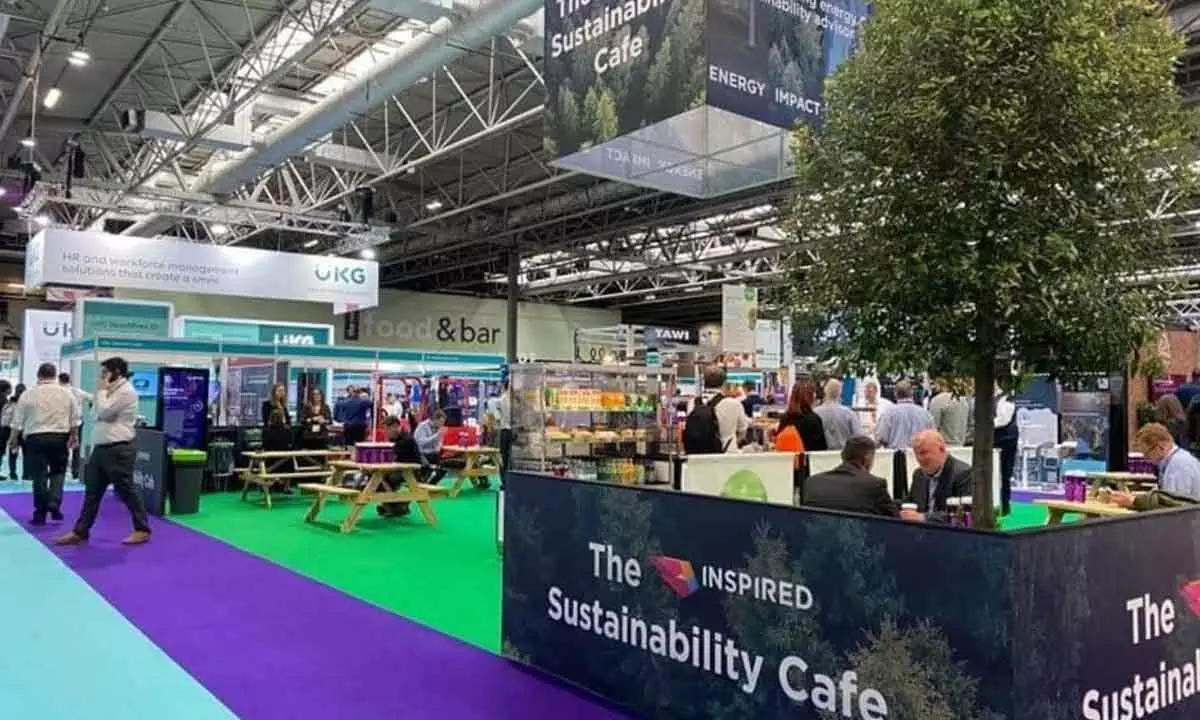Sustainability, the essence of exhibition industry
Sustainable development is a priority for governments, industries, companies and NGOs
image for illustrative purpose

Understanding the meaning of 'sustainable exhibition' can indeed influence the cost of organising one, as it helps in getting to know the materials and logistics that are required. Misunderstandings of the concept can lead to greenwashing, inauthentic practices, and ineffective communication of environmental messages. Understanding sustainable exhibition per se can vary across different cultures or regions, influenced by social, environmental and economic contexts.
The impact of sustainable exhibitions extends beyond their environmental message to include educational, social and economic effects. They can raise awareness about environmental issues, incorporate technology to enhance the visitor's experience and stimulate local economies and businesses. They can also influence policy-making and provide businesses with opportunities for enhancing their brand image and learning about sustainability trends.
Sustainable development is a strong priority in today’s world and many governments, industries, companies, and NGOs are considering it as a strategic factor. UFI, the global association of the exhibitions industry, is committed to driving and supporting sustainable development among the members and the exhibition industry as a whole. Exhibitions are market places, and they provide a sustainable way of doing business: they are drivers for economic development for both their participants and the territories where they are held and being one-stop wonders they reduce multiple travel. They also represent platforms whereby good practices and innovations are shared, says Kai Hattendorf UFI Managing Director and CEO.
The future of sustainable exhibitions is likely to be influenced by ongoing technological developments, shifts in public awareness and attitudes, and the evolving challenges of the environmental crisis. There is the potential for greater integration of digital and interactive technologies, wider collaboration across sectors, and an even stronger focus on sustainability in all aspects of exhibition design and management.
The German trade fair industry fully supports the goals of the Paris Agreement towards limiting global warming to 1.5 degrees Celsius. Based on the many existing climate neutrality measures of numerous stakeholders within the trade fair business our industry sector wants to contribute to the achievement of the climate target," he said.
The German trade fair industry will become climate-neutral by 2040. By the next year at the latest, they will supply themselves with 100 percent green power as it will make sustainability a requirement in tenders with its industry partners. These three and six other goals were set by the 69 organizers, associations and hosts of trade fairs in Germany, under the AUMA umbrella at their recent annual conference in Berlin. It is a joint process that will be continuously developed. The accomplishments will be surveyed regularly.
Extreme weather conditions will lead to more frequent show cancellations and postponements. They will also impact travel and attendance. A significant development is the introduction of climate-related reporting standards.
More and more businesses are prioritising their investments to match emission targets. The “Net Zero Carbon Events” initiative delivers good practices and evolving industry standards, but the industry will need to speed up and go beyond the “low-hanging fruit” if it wants to remain in control over how it responds to this very real threat.
In today’s landscape, colleagues, customers, and partners want to work with and for companies that invest in sustainable and inclusive business operations and value chains. The need to attract and nurture new talent and boost the employer value proposition is critical.
Gen Z workers are particularly focused on purpose, and they think about how an organisation aligns with their identity and personal brand. For this group, networks, relationships, and trust among people, teams and leaders are very important. Companies can nurture such social capital by empowering employees to build and maintain networks and relationships, giving them the access, skills, and the motivation to go about it.
Organisations are coming under more pressure to deliver against environmental commitments and emissions reduction targets, both internally via employees and leadership, and externally via shareholders, business partners and regulators.
Strategies may start with more granular carbon calculations, changing behaviour by influencing choice at the point of sale (for example driving modal shift from plane to train), sourcing more sustainably, implementing a price on carbon emissions, and investing in carbon compensation and carbon mitigation via sustainable aviation fuel (SAF).
Initiatives ought to focus on: Sourcing strategies that select suppliers based on sustainability criteria across air, rail, hotel, and car. Building a sustainable investment fund with 'carbon contribution' fees attached to business travel and defining criteria to measure purposeful, thoughtful travel and meetings, including ROI, carbon emissions and savings.

